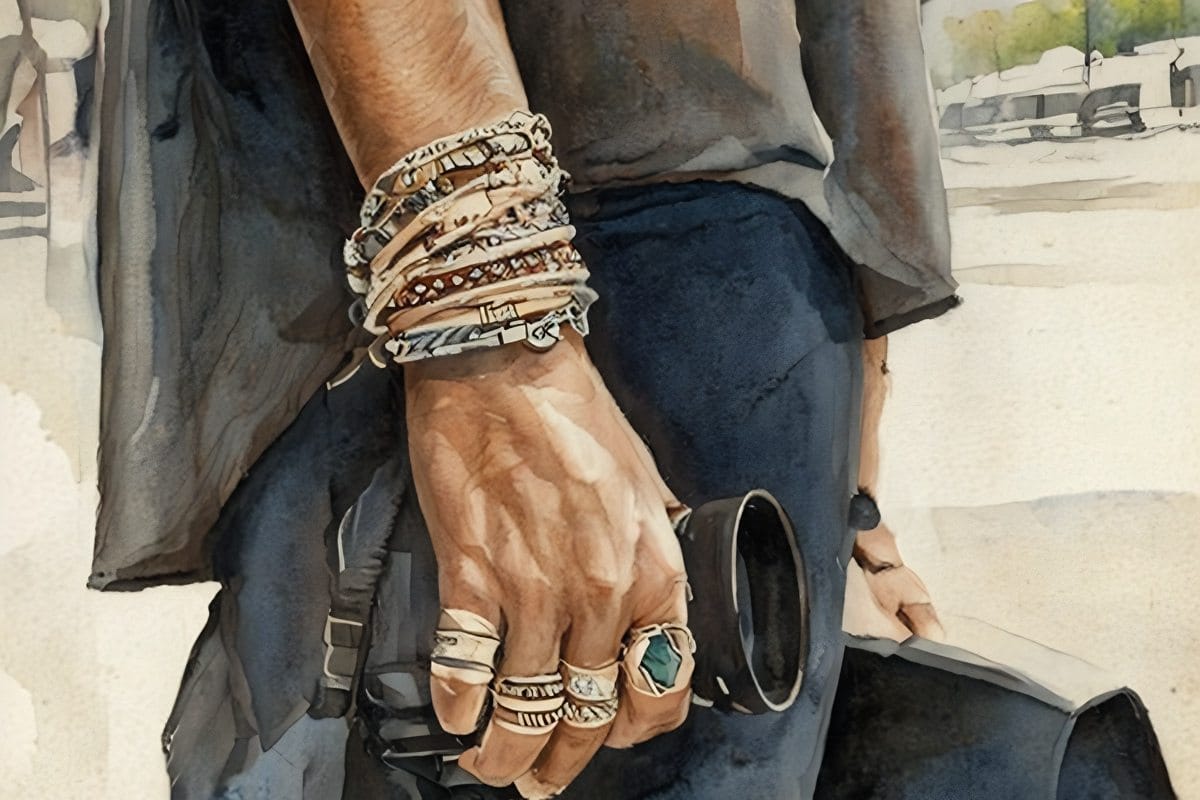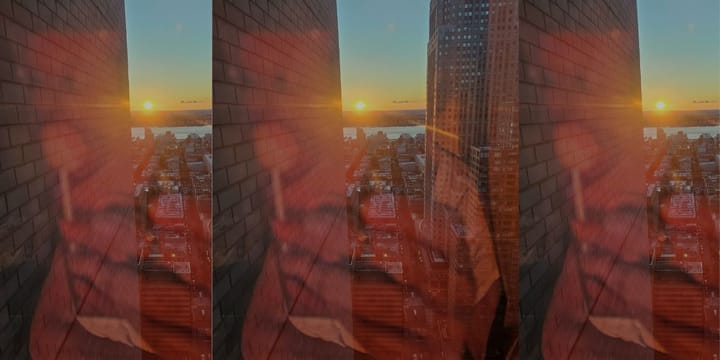Rewritten
Sometimes, the year ends exactly where it needs to: not in grand finales or clean epilogues, but in the quiet return of something that once felt impossible.

I popped the hatch of my Land Rover and hauled out a backpack so heavy it made the suspension sigh. Four vehicles slept beneath Fall Creek’s redwood canopy, more silence than crowd. Exactly the ratio I craved. I tapped my earbud volume higher; small talk was for people with emotional reserves. Mine were flashing empty.
Gravel crunched behind me.
Probably hikers. Asking about waterfalls. Or the best spot for Instagram lighting. I braced for polite refusal.
Instead, a hand—warm, unhurried—touched the small of my back.
I spun, half-ready to fend off a stranger, and collided with something painfully familiar. He pinned my wrists above my head, pressed me against the cold metal of the car, and kissed me—like confession, like apology, like the punctuation mark to a year I barely survived.
That was how the year ended. It is not how the year began.
On January 1st, I woke in a bed that smelled like strawberries, cigarettes, and uncorked champagne. Olivia slept beside me—warm, radiant, almost unbearable. We'd collided at the Monterey Bay Aquarium four days earlier. Jellyfish drifted in a blue cathedral, and she drifted into my orbit with a line about their ability to clone themselves. She said it with a half-smile, like she was testing the weight of her words. It felt more like a proposition than a fact.
I followed her without resistance. Invitations beat loneliness, and I wanted to know if desire could outrun numbness.
We tested the theory.
Four nights. Her hair slapped my cheek as she moved, her hips grinding with a deliberate rhythm that demanded presence. Her breasts rose and fell like small tides, but her eyes stayed closed, always traveling somewhere I couldn’t follow. I matched her rhythm—eager student to seasoned tutor. She was, I guessed, thirty-two, maybe thirty-three. Old enough to know her power, young enough to wield it without apology. Age never bothered me. If anything, older lovers had always felt like tidepools—brief, intense, evaporating by morning.
Still, something about Olivia unsettled me. She was the kind of beautiful that looked dangerous under lamplight. A black pearl in a tar-pit. The longer I lingered, the more I felt myself sinking.
I watched her sleep and wondered: Did she feel anything? Was I just another place to visit—another warm, temporary coastline? Inside, I ached. Not for her. For something I couldn’t name. I gave our marathon an objective eight, admired her precision, her command, and waited for the void inside me to blink.
It didn’t.
That morning, her father—Clive Trenton, golf-course architect and local Pebble Beach legend—had floated an invitation over cocktails: “Come swing a few with us tomorrow, Ryan. We tee off at seven, right on the Seventh.”
Translation: dawn photo-op with moneyed men in windbreakers, me grinning like the caddie’s understudy from central casting. I pictured divots exploding in slow motion, my rented clubs vibrating in protest, a caddie whispering yardages I’d instantly forget. Golf, to me, is manicured frustration wrapped in plaid—grass too perfect to trust.
I rehearsed a dozen excuses. Emergency audition. Calamari poisoning. City call time. Anything but saying the truth: I needed to be somewhere I could breathe. I planned a clean exit—espresso from her machine, a kiss on her temple, and Highway 1 unfurling north like a ribbon calling me home.
But as dawn diluted the room, I lay there cataloguing ceiling beams like emergency exits on a crashing plane. A sharper thought pressed in: What if the problem isn’t them at all? What if the vacancy humming inside me is self-installed?
A slow leak fed by grief, distraction, and inherited sadness. The ache of deferred living.
One resolution, I told the beams. Stay open—even when it hurts. Especially when it hurts.
I left without waking her. Northbound.
A week later, Christmas haze behind me, I pulled into Fall Creek. The air was sharp with pine and ghosts. It was the place Dad had taken me to hike as a kid. It was the place I came to reset.
When he died, I stopped coming. As if grief contaminated the ground. But that day, something told me to return. Maybe it was the redwoods—those impossibly tall witnesses to so many lives unraveling and reassembling. Maybe it was the need to see if the ache had changed shape.
I stepped out, crunched gravel, adjusted my earbuds.
Then the touch. Warm. Familiar.
When I turned and saw him—him—everything slowed.
He didn’t speak. His hands moved as if they remembered a script we’d never finished. He kissed me like punctuation. Like a final line in a paragraph I’d been revising all year.
We hadn’t seen each other in months. A silence born from fear, not anger. I hadn’t known how to explain my emptiness to someone who’d tried to fill it. He hadn’t known how to wait without breaking.
“Hi,” I said, stupidly, breathless.
He rested his forehead against mine. “I thought maybe you’d come here.”
“You always were better at knowing where I’d end up.”
“I was just hoping you’d stop running before I stopped chasing.”
I could’ve cried right there. Instead, I laughed—a soft, startled sound, like remembering a joke mid-sob. He took my hand, and we walked toward the trail like people returning to a house they once shared.
We didn’t talk much. Words weren’t the right currency. Not yet.
We passed the creek, now a silver ribbon carving the woods. We reached the bend where the redwoods grow impossibly tall, and where I once carved a date into the bark with a pocketknife, not realizing that scars grow too.
I turned to him.
“I saw jellyfish last week,” I said. “At the aquarium.”
He smiled, confused. “Random.”
“Did you know they can reproduce asexually?”
“Sure. Everyone knows that.”
I shook my head. “No. Some of us pretend we didn’t. Because it’s easier than admitting we’d rather clone ourselves than let anyone get close again.”
He didn’t flinch.
Instead, he brushed a strand of hair from my face, the same way he used to. Not a claim. Just a memory.
“I’m not asking for forever,” he said. “Just for right now.”
And for the first time in months, I didn’t want to run.
Sometimes, the year ends exactly where it needs to: not in grand finales or clean epilogues, but in the quiet return of something that once felt impossible.
And sometimes, the person who catches you off guard isn’t the one who leaves—but the one who stayed close enough to find you again.



